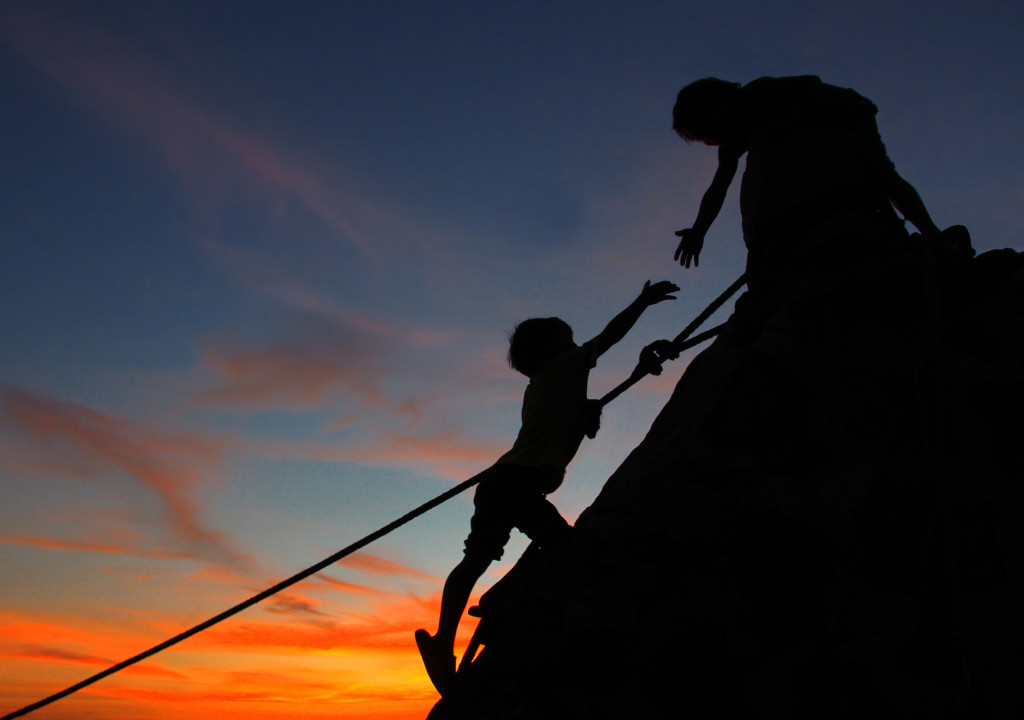This month we celebrate our liberation from Egypt. The festival of Passover -for modern Jews the most significant moment of the Jewish year (- yes, even more Jews attend a Passover seder than fast on Yom Kippur – see Pew Research Center, A Portrait of Jewish Americans) – is a time for making special efforts to go back to our national beginnings, to when we were freed from slavery.
But the Passover seder calls on us not only to retell a story of old. The point of the story telling is to get us into an imaginative mindset so that “in each generation, a person must see himself or herself as if s/he has personally left Egypt.” (- from the traditional haggadah, the text used at the seder) We are meant to feel the experience of liberation as a personal, immediate experience. All of the stories, games, songs and discussions that we have around the seder table are meant to cumulatively produce in each of us a final felling of release, of liberation, of escape from bondage to freedom.
What might that sensation feel like? Imagine a person locked in a dark room for a prolonged period of time. Then they are pulled out into the sunshine. What do they feel? The first moments are a mixture of exhilaration and dislocation. The light is warm and bracing, but it is also blinding. Is that the feeling we are meant to recreate for ourselves?
Often, when we study our Torah portions that narrate the wandering of the Israelites in the desert, we struggle to understand their recurrent complaining and rebelliousness. More than one person has suggested that some of this comes from the strangeness that the Israelites feel about their newly acquired sense of freedom. They have been thrust out of slavery into freedom and have a tough time using it responsibly. It is no wonder that sometimes they appeal to “alternative facts” about how great it once was in Egypt and hanker to go back there.
So is it that sense of confusion and disorientation that we are trying to regain for ourselves by seeing ourselves as having just now personally left Egypt?
I don’t think so. The wisdom of our tradition is not so limited as to think that we can blithely make believe that we are newly freed slaves while we also simultaneously pass the matzah at our sumptuously decorated dinner tables, asking about this one’s college plans and this one’s retirement plans. Instead, what is being called for is what some thinkers label a ”second naivete.”
Naivete is seen as an innocent attitude toward the world, in which one is mostly unaware of life’s complexities, dangers and challenges. Naivete does not fear failure, betrayal or shame. It is a sweet feature of youth. But it is often seen as a contemptuous feature of older people, who should be more “realistic and mature.” Experience is supposed to teach us to lose our naivete because of all the darker and weightier parts of life that we are forced to encounter. Those who fail to lose their naivete, are sometimes accused of being irresponsible if they try to make others adopt their perspective. To be oblivious to danger is to invite suffering. Naïve people are seen as very dangerous if they have power.
But, if losing one’s naivete is morally necessary in order to survive and navigate this world, such a loss threatens to be greater and more costly than merely the loss of youthful naivete itself. The danger is that one will lose the basic elements that make for a moral life. For naivete is closely attached to such virtues as hope and faith, generosity and courage. We cannot afford to lose those attributes if we wish to be fully human.
So it is necessary to seek a way to recapture the radiance of naivete while grounding it in a toughened consciousness of realism. Persisting in first naivete is dangerous. Reaching for second naivete is redemptive. Such a second naivete would be very different from the first kind. It would seek to avoid falling into simplified ideas or actions while it would persevere in insisting on finding ways to live a life of love, compassion and justice.
This is the challenge put to us by our seder. The first time we were liberated we were unprepared for it. We stumbled and fell many times. This time we must go forth from Egypt with that set of cautionary memories in our baggage. This time we can do it better. We are forewarned and forearmed. This time we leave Egypt ready to repair the world.
Image: “reaching out” by Ding Digital Photography is licensed under CC BY 2.0
- Toby Stein: In Memoriam - Thu, Feb 8, 2024
- Faithfulness and Hope: Parashat Sh’lach - Thu, Jun 23, 2022
- Past Their Prime: Parashat B’ha`a lot’kha - Thu, Jun 16, 2022


Amen